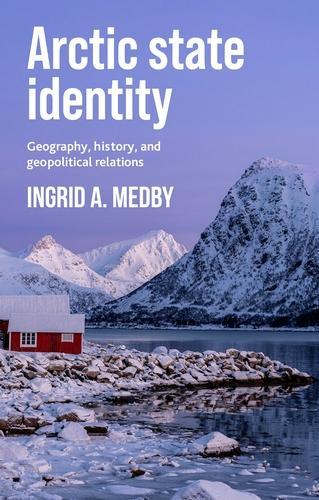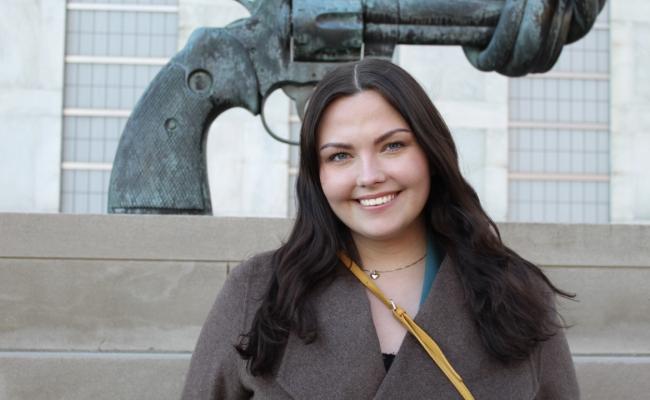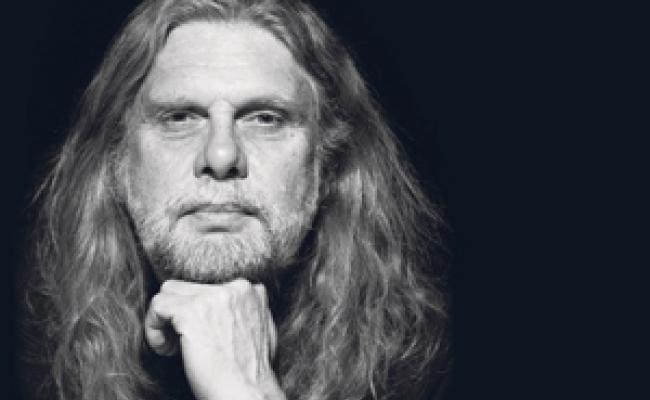Arctic Frontiers 2025: Ingrid A. Medby Has Researched the Arctic Identity
High North News met researcher Ingrid A. Medby during the Arctic Frontiers conference in Tromsø, Northern Norway. She has written a book about the Arctic state identity and what that encompasses. (Photo: Birgitte Annie Hansen)
Tromsø (High North News): Researcher Ingrid A. Medby has researched the Arctic state identity and what the term 'Arctic' entails for state employees in Norway, Canada, and Iceland. She hopes her research can increase awareness of the term and its benefits and responsibilities.
In the book Arctic State Identity, Dr. Ingrid A. Medby explores what it means to hold a formal title as one of the eight Arctic states and whether there is an Arctic state identity.
Through interviews with state personnel from Norway, Iceland, and Canada, the researcher shows how the Arctic identity is described in terms of both temporal and geographic aspects.
Through studies and work in Australia, England, and Belgium, among other places, the researcher became aware of how the rest of the world views Northern Norway and, eventually, the High North and the Arctic.
"I became increasingly interested in how terms about Arctic identity were used in politics," said the researcher in an interview with HNN during the Arctic Frontiers conference in Tromsø, Northern Norway.
"Being an Arctic country means certain things politically, it brings about rights and responsibilities."
Arctic state identity
Medby has interviewed state employees, such as politicians, officials, advisors, and parliamentarians. She wanted to understand the personal perspectives of the people who represent the state daily and their relationship to the Arctic label.
What representing an Arctic state entailed for the state employees varied.

Ingrid A. Medby's book Arctic State Identity was released on Tuesday, January 28th.
For Norwegians, being an Arctic state is closely linked to being a coastal nation with a long history of shipping and fisheries.
In Canada, the Arctic was nearly always synonymous with Indigenous peoples and land, while the Icelandic could feel a bit 'less Arctic' because they don't have Indigenous people.
"For Iceland, the title 'Arctic state' is even newer than it is for Norway, and it is closely linked to tourism."
In addition, many Icelanders link the term to Ólafur Ragnar Grímsson (Icelandic president from 1996 to 2016) and a desire to attract new investors and new opportunities after the financial crisis – a sort of branding.
For others, often those living farther south in the countries, the Arctic is only a formal political title. For those, the country had an Arctic identity, and they did not have a personal connection to the label.
"As humans, if you're a minister or a diplomat, the way you understand your own country's identity matters," says Medby.
She believes it is essential to acknowledge that the state apparatus consists of people who all bring with them experiences, opinions, and perspectives.
"We tend to talk about a country doing something or diplomats and politicians. They aren't seen as people who also have all sorts of personal experiences that come into play."
Dr. Ingrid A. Medby teaches Human Geography at Newcastle University in England. Her doctoral project focused on Arctic identity. (Photo: Birgitte Annie Hansen)
The Arctic vs. the High North
Literature researcher Henning Howlid Wærp writes in the book Arktisk Literature that Norway has gone from being described as a country with an Arctic region to an Arctic country as a whole.
He believes the government's High North investment has contributed to Arctify Tromsø, for example, which has gone from being the gate to the Arctic Ocean to being "in the middle of the Arctic," according to Espen Barth Eide's statement when the Arctic Council Secretariat was permanently placed in the city in 2013.
Is the Arctic term a way of elevating the North to a more international arena, while terms like Northern Norway and the High North are seen as more peripheral?
"We generally use the term Arctic most often concerning foreign policy. The government's strategies have strayed further and further away from the High North term. The Arctic has gained a greater position," explains the researcher and adds:
"That is probably because it resonates more internationally. The Arctic is linked to "hotter" subjects, such as defense and security, and not so much to health and housing policy, for example."
"But one can read in the book that it is in the Arctic that foreign and interior policy meet to the greatest extent."
The term entails both responsibilities and benefits.
The idea of the future
One of the book's main points is that the Arctic is a region defined by ideas of the future.
"It is a region defined by what one thinks, hopes, and fears could happen."
"We fear climate change, that it could worsen, and how to plan and counter it. But there is also hope for new and undiscovered resources."
Medby says that the Arctic identity is an interplay between the past and present, but it also holds great potential for the future.
"For Iceland, being an Arctic state was much about being part of what would happen and less about its history. It was about what their role in the world could be if shipping from Asia along northern routes increased, for example."
Impacts decisions
Medby says that how politicians, diplomats, and other officials look at themselves, their country, and their jobs significantly influences what rooms of opportunities appear open.
"How politicians and diplomats look at themselves and their job has a lot to say for which decisions are made," she says.
Medby hopes the book increases focus on how the state plays out through people and what personal relations and background signify politically.
In addition, she hopes her research will increase awareness of the term Arctic state and the opportunities it offers, as well as the responsibility it entails, particularly regarding indigenous peoples.
"I hope the term Arctic state becomes less foreign and that one becomes more aware of what it means to live in a region that is perceived a certain way from the outside. The Arctic has a special role that we should exploit and relate to."



